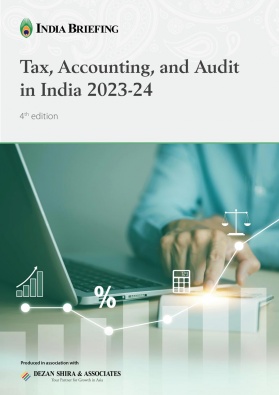India’s New E-commerce Tax Regulations for Composition Taxpayers and Unregistered Individuals
Regulator CBIC has introduced new e-commerce tax rules in India, affecting composition taxpayers and unregistered individuals. These involve specialized e-commerce procedures for goods supplies and aim to improve tax transparency and compliant behavior. E-commerce operators in India must collect TCS for composition taxpayers, while unregistered individuals will require enrolment numbers before supplying goods. These measures, effective from October 1, 2023, support small businesses. Businesses should prepare for the changes and seek professional advice for a smooth transition.
India’s Central Board of Indirect Taxes and Customs (CBIC) has issued two significant notifications, dated August 4, 2023, namely Notification No. 36/2023-Central Tax and Notification No. 37/2023-Central Tax.
These notifications introduce a specialized procedure for e-commerce operators concerning the supply of goods by composition taxpayers and unregistered individuals. They aim to simplify tax compliance, enhance transparency, and support the growth of small and medium (SME) businesses.
As the effective date of these changes—October 1, 2023—draws near, it is advisable for businesses to familiarize themselves with the alterations and consider seeking professional advice to ensure a seamless transition to the new protocols.
New e-commerce tax rules for supplies by composition taxpayers in India
Under Notification No. 36/2023-Central Tax, the CBIC has granted e-commerce operators specific responsibilities and laid down fresh procedures to manage handling the supply of goods by composition taxpayers. The key points are as follows:
- Restrictions on inter-state supply: The new rules restrict e-commerce operators from facilitating the inter-state supply of goods by composition taxpayers.
- Tax collection at source (TCS): As per the new rules, e-commerce operators are responsible for collecting TCS for the supply of goods by composition taxpayers.
- Utilization of TCS: Composition taxpayers have the flexibility to employ the funds available in their Electronic Cash Ledger, which originate from the TCS collected by the e-commerce operator, to offset their output tax liability.
- Electronic reporting: To ensure transparency and simplified reporting, e-commerce operators must electronically provide details of goods supplied by composition taxpayers through Form GSTR-8 on the common GST portal.
New e-commerce tax guidelines for supplies by unregistered persons
CBIC has issued Notification No. 37/2023-Central Tax, outlining a distinct procedure for e-commerce operators regarding the supply of goods by unregistered individuals. The key provisions are as follows:
- Enrolment number requirement: Unregistered individuals are permitted to provide goods through e-commerce operators, but they must first acquire an enrolment number from the common GST portal. This requirement guarantees that unregistered enterprises complete essential registration procedures before becoming involved in e-commerce activities.
- No tax collection at source: In contrast to supplies made through composition taxpayers, e-commerce operators are not authorized to collect TCS under Section 52 of the CGST Act for goods supplied by unregistered individuals. This exception streamlines the process of tax collection for unregistered suppliers.
- Digital reporting: E-commerce operators are obligated to electronically furnish comprehensive information about supplies conducted through unregistered individuals, utilizing Form GSTR-8 on the common GST portal. This initiative enhances transparency and streamlines compliance.
About Us
India Briefing is produced by Dezan Shira & Associates. The firm assists foreign investors throughout Asia from offices across the world, including in Delhi and Mumbai. Readers may write to india@dezshira.com for more support on doing business in India.
We also maintain offices or have alliance partners assisting foreign investors in Indonesia, Singapore, Vietnam, Philippines, Malaysia, Thailand, Italy, Germany, and the United States, in addition to practices in Bangladesh and Russia.
- Previous Article India’s Chemical Industry Expected to Reach US$304 Billion by 2025
- Next Article Equalization Levy Compliance Framework for Non-Resident E-Commerce Operators in India








